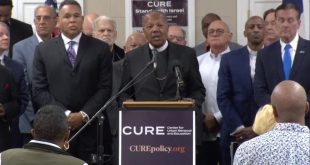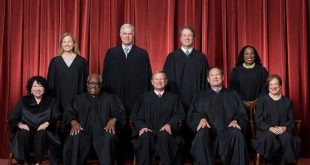Lorie Smith is a Christian who designs websites. A resident of Colorado, she wants to provide services that won’t conflict with her religious beliefs. For example, she believes what the Bible teaches about marriage — that marriage is a God-ordained union between one man and one woman. To design a site for a homosexual “wedding” would conflict with this belief and what God says about sin.
Colorado lawmakers passed a law called the Anti-Discrimination Act, which the Colorado Civil Rights Commission interprets as requiring business owners to use their artistic talents to create custom work they find objectionable. To penalize residents who refuse to do so is not only a violation of religious freedom; it’s also a violation of freedom of speech.
The law also bars business owners from explaining why they can’t make objectionable content — if that explanation is religious.
Although Smith hadn’t been charged with violating this law, she filed what’s known as a pre-enforcement challenge. But a federal court dismissed her claim because she lacked standing.
Smith appealed to the U.S. Court of Appeals for the Tenth Circuit, which ruled (PDF) this week that she has standing. However, the court ruled against her. The majority contended that the law “satisfies strict scrutiny, and thus permissibly compels Appellants’ speech. We also hold that CADA is a neutral law of general applicability, and that it is not unconstitutionally vague or overbroad.” (emphasis added)
Under the same reasoning, a black web designer in Colorado could be compelled to design a site for mythical “white supremacists” leftists are convinced exist.
In his dissent, Chief Judge Timothy Tymkovich wrote that the Constitution “neither forces Ms. Smith to compromise her beliefs nor condones the government doing so. In fact, this case illustrates exactly why we have a First
Amendment. Properly applied, the Constitution protects Ms. Smith from the government telling her what to say or do.” He added that “the majority holds that the more unique a product, the more aggressively the government may regulate access to it—and thus the less First Amendment protection it has. This is, in a word, unprecedented.”
Alliance Defending Freedom, which represents Smith, said she will appeal the decision.
Contrast this decision with that of Blaine Adamson from Kentucky. He creates print messages for T-shirts. He hires and serves homosexuals, but he won’t print messages that conflict with his Christian beliefs. After he declined to make graphics for a “gay pride” event, homosexuals filed a complaint with the Lexington-Fayette Urban Human Rights Commission, which claimed that he discriminated against them.
A circuit court reversed the commission’s ruling. The commission appealed, and the Kentucky Court of Appeals ruled in Adamson’s favor. The Kentucky Supreme Court also decided in Adamson’s favor, ruling that the commission lacked standing to sue him.
Photo credit: Alliance Defending Freedom
 CURE News and Clergy Blog News and Commentary for Christians
CURE News and Clergy Blog News and Commentary for Christians




So grateful for BCN for Ms Parker, men n ladies like Burgess Owens and Kay Cole James and others standing strong for Christ for others for America’s Constitution. These representatives of truth right and people of morality are priceless American treasures. They are courageous humanoids even unto their fellow melanin like peers in a day when indoctrination by our media has devolved into half-truths, non journalistic sensationalized narratives to push a liberal GODLESS “racist” marxist demonkrautic agenda. SALUTE! 💪💙#Godblessu
Thanks so much for reading, Tim!
Will Queer Bakerys bake cakes with Anti-gay messages on them?
Find one that won’t and Sue Them into bankruptcy!
If they do bake one, Don’t eat it, could be health risks.
Black Community News has very interesting and thought-provoking reading. With that said, most Americans born before 1960 can attest that there is nothing “mythical” about White supremacists in the U.S. They do exist.
I was referring to now, 2021, and in the context of a black business owner required to provide services that are contrary to his beliefs because of an “anti-discrimination” law.
Makes perfect sense
Should we get rid of the civil rights act that MLK fought so hard for too because it will allow people to exercise their religious freedom to not do business with black people?